
A study showed that adolescents and young adults with certain types of cancers saw significant improvements in their 5-year mortality rates, while other cancer types saw little to no significant improvement among the same demographic group.

Your AI-Trained Oncology Knowledge Connection!


A study showed that adolescents and young adults with certain types of cancers saw significant improvements in their 5-year mortality rates, while other cancer types saw little to no significant improvement among the same demographic group.

The FDA approved the combination use of nivolumab plus ipilimumab for the treatment of patients with HCC who have been previously treated with sorafenib.

Patients with either relapsed or refractory non-Hodgkin lymphoma or chronic lymphocytic leukemia treated with CAR NK cells had a response without the development of cytokine release syndrome, neurotoxicity, or graft-versus-host disease.
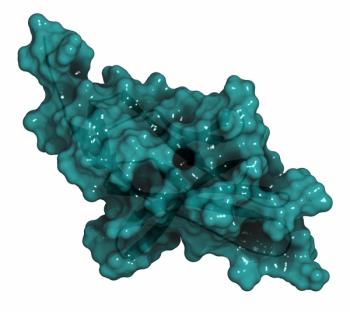
Researchers indicated that a lack of understanding of the mechanism and efficacy of PD-1/PD-L1 inhibitors is the major barrier for prescription of these inhibitors in Chinese tumor treatment-related departments.
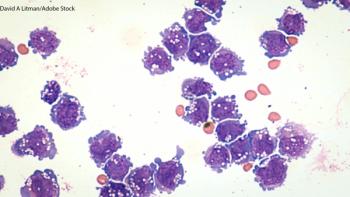
The phase I trial is evaluating cobomarsen in cancers where the disease process appears to be correlated with an increase in miR-155 levels, including adult T-cell leukemia/lymphoma, diffuse large B-cell lymphoma, and chronic lymphocytic leukemia.

The company’s application is based on results from the phase III IMbrave150 study of the regimen for the treatment of patients with unresectable hepatocellular carcinoma who have not received prior systemic therapy.
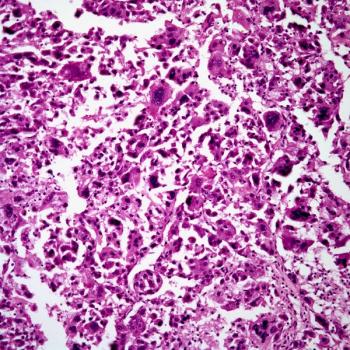
High-quality patient reported outcomes were observed, suggesting benefits in key aspects of the patient experience with this combination treatment.

Research shows that digital videos led to increased knowledge and interventions, but access for vulnerable populations must be improved.

This data could present a non-invasive option for characterizing tumor heterogeneity to improve personalized prognosis and treatment of patients with breast cancer.
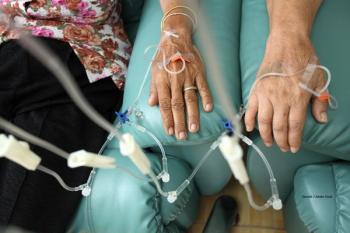
The drug has demonstrated the ability to reduce neutropenia induced by chemotherapy without affecting bone marrow or blood-G-CSF levels.

Researchers indicated that this sort of non-pharmaceutical programming is warranted to enhance quality of life as the cancer population continues to grow.
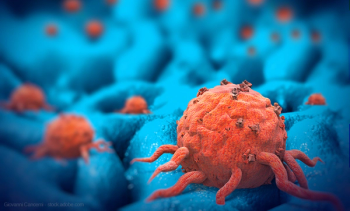
The criterion-based valuation framework was created with the intention of being revised as public feedback is ascertained and the landscape of cancer care evolves.

A study showed that acupuncture use brought a significant reduction in pain along with a decreased use of analgesics.
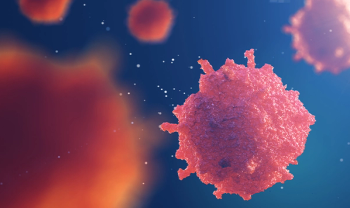
Authors indicated that reductions in smoking and treatment breakthroughs have led to this steady decline.

Researchers found that patients in this study used a number of unsafe practices to limit opioid use, including turning to other substances to avoid “harder medicines.”

Researchers suggest that improved communication at the facility-level and health-system level could significantly improve the care of nursing home residents with poor-prognosis cancer.

A phase I study showed brentuximab vedotin combined with a standard chemotherapy regimen of mitoxantrone, etoposide, and cytarabine may be safe and well tolerated in patients with relapsed/refractory acute myeloid leukemia.
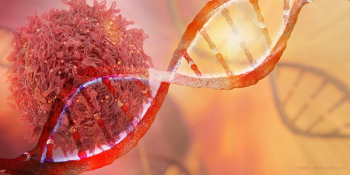
Even in light to moderate levels, alcohol consumption appears to be associated with elevated cancer risks in Japan.

Results in this study suggested that targeting fusions led to considerably high response rates and longer progression-free survival.

Lawrence Feldman, MD, of the division of hematology and oncology in the department of medicine at the University of Illinois at Chicago, and a team of researchers received a grant to explore addiction, abuse, and new ways to prescribe opioids.
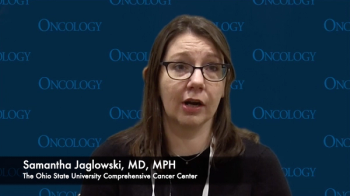
The associate professor at The Ohio State University Comprehensive Cancer Center discussed the implications of her analysis of the CAR T-cell therapy tisagenlecleucel for patients with diffuse large B-cell lymphoma at the ASH Annual Meeting & Exposition.

The drug is currently the subject of an ongoing phase I/II clinical study for the treatment of patients with Ewing sarcoma who have relapsed or are refractory to standard-of-care therapy.
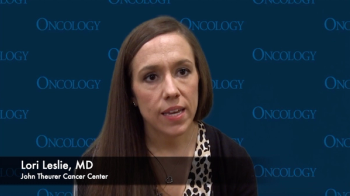

The Swedish Cancer Center expert discussed the addition of polatuzumab vedotin to a bendamustine-rituximab regimen at the ASH Annual Meeting & Exposition.
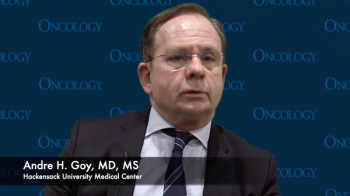
Andre H. Goy, MD, MS, from Hackensack University Medical Center, discussed ways to address the extension of survival for patients with DLBCL who achieved a complete remission at the ASH Annual Meeting & Exposition.

As the treatment landscape for lung cancer continues to evolve, especially within subgroups of patients with particular mutations and molecular profiles, it can be difficult for oncologists to stay up-to-date.

ONCOLOGY recently sat down with Heather Wakelee, MD, to discuss major trends in lung cancer, such as treatment advances, updates in genetic testing, the unknown risks of vaping, and where the field is headed next.


Mazyar Shadman, MD, MPH, discussed the study he and colleagues are conducting to evaluate CAR T-cell therapy in high-risk patients with chronic lymphocytic leukemia.

ONCOLOGY recently spoke with Ana Maria Cristina De Jesus-Acosta, MD, an assistant professor of oncology at Johns Hopkins University, about the molecular characterization and treatment of pancreatic neuroendocrine tumors.